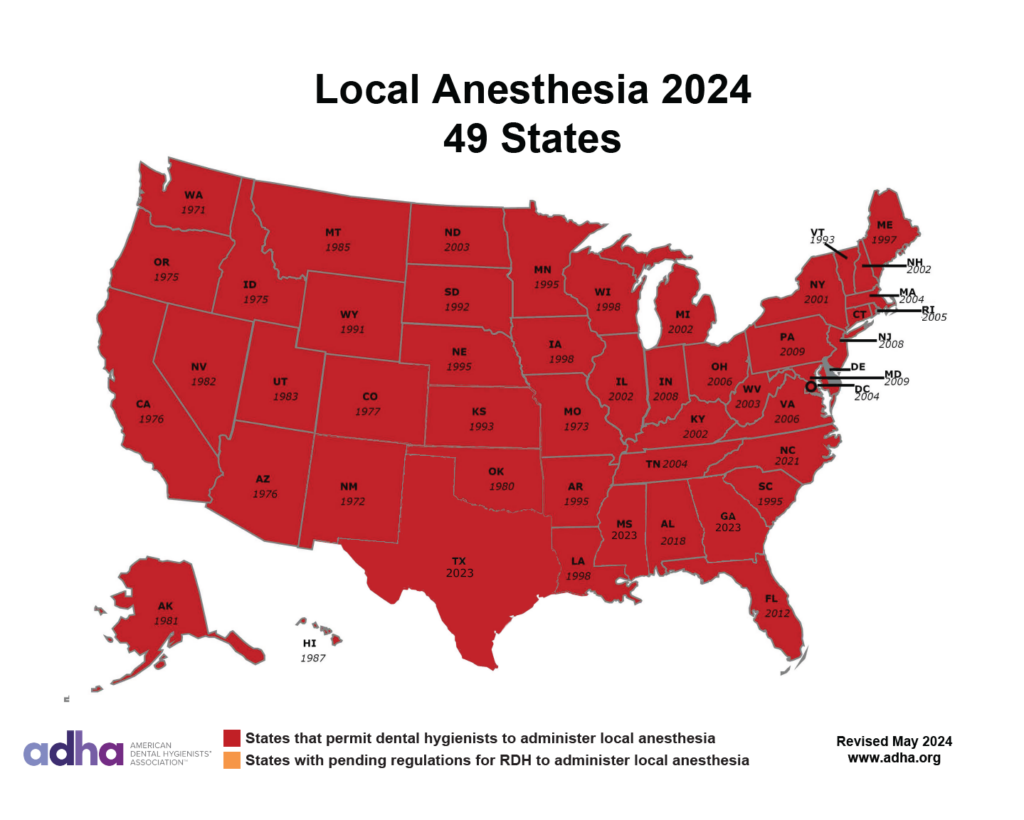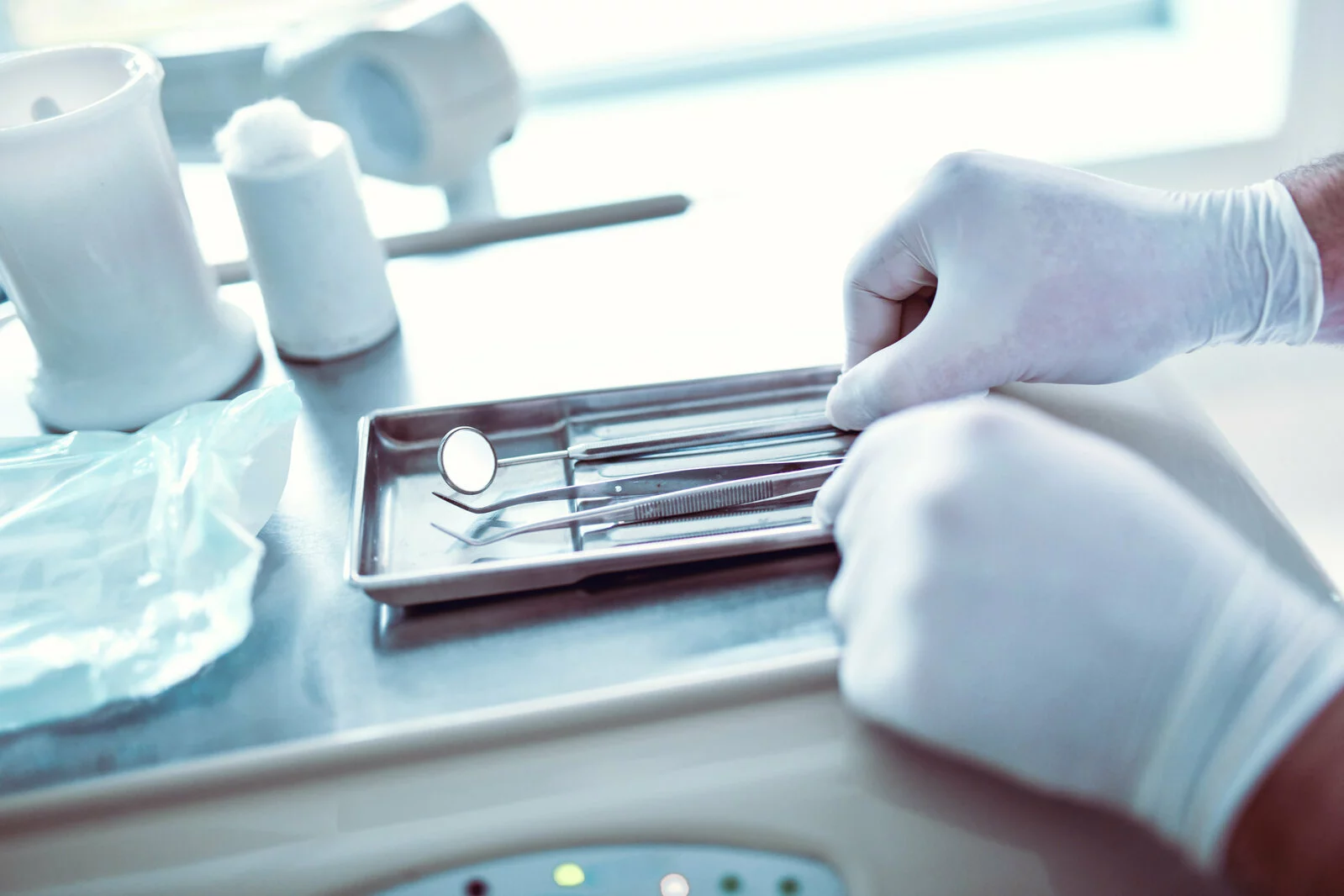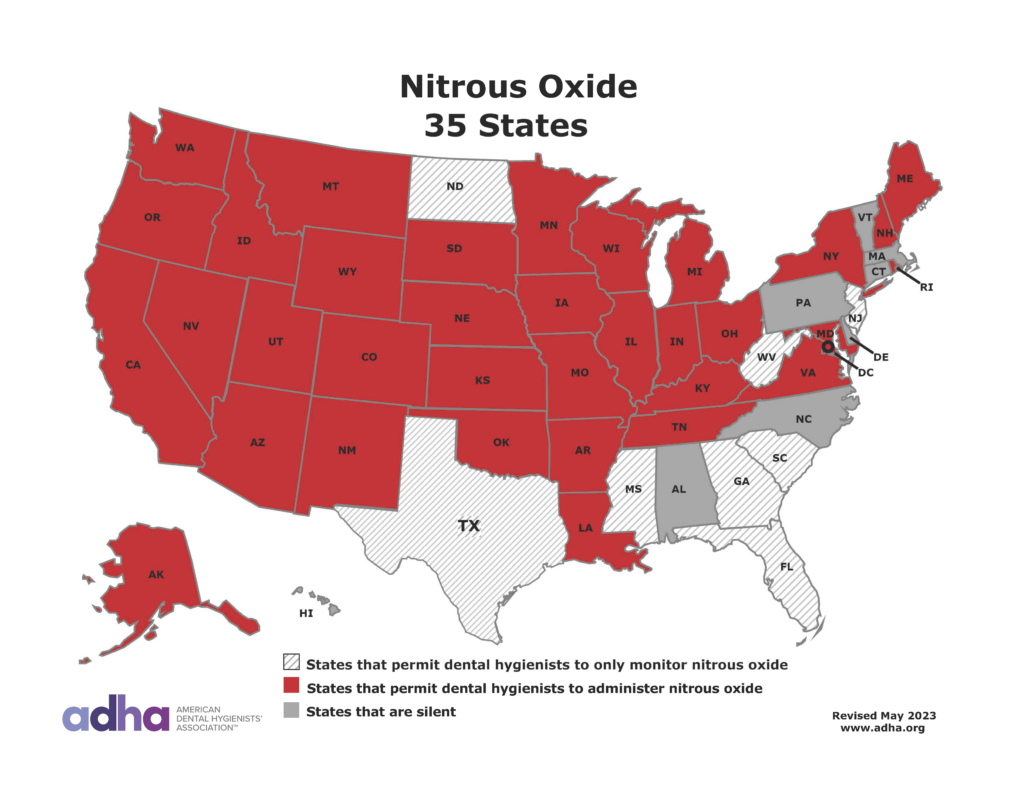Dental hygienists work in a host of different settings and under varying levels of supervision. Each state enacts its own laws determining the services dental hygienists can provide, the settings in which they can practice, and the supervision under which they practice.
Direct Access
Access to oral health care is one of the highest priorities of ADHA. Direct Access refers to the ability of a dental hygienist to initiate treatment based on their assessment of a patient’s needs without the specific authorization of a dentist, treat the patient without the presence of a dentist, and maintain a provider-patient relationship.
Learn More About Direct ACCESS
Scope of Practice
Permitted functions and supervision requirements vary widely by state. To verify any of these requirements, please contact your state’s dental board. The Oral Health Workforce Research Center also offer an interesting overview of the variation in dental hygiene scope of practice by state here.
Medicaid Reimbursement
Nineteen states currently have statutory or regulatory language allowing the state Medicaid department to reimburse dental hygienists for services rendered.
View Medicaid Reimbursement States
Restorative Services
As with other functions, each state enacts its own laws determining restorative services provided by dental hygienists, and supervision required. Learn more about typical restorative services and find a reference chart by state here.
Anesthesia
Dental hygienists began administering local anesthesia more than 50 years ago, and these oral care professionals are well qualified to help ensure patients can comfortably receive care without pain. Currently, 49 states permit dental hygienists to administer local anesthesia. There are 35 states that permit dental hygienists to administer nitrous oxide.

Dental Hygiene Diagnosis
It is the position of the ADHA that dental hygiene diagnosis is a necessary and intrinsic element of dental hygiene education and scope of practice. Learn more here.
Silver Diamine Fluoride
Silver diamine fluoride (SDF) 38% has been used extensively outside the United States for many years for caries control. SDF is a colorless liquid, or tinted blue, containing silver particles and fluoride ion that at pH 10 or 13 is 25% silver, 8% ammonia, 5% fluoride (44,800 ppm), and 62% water. This is referred to as 38% SDF.


